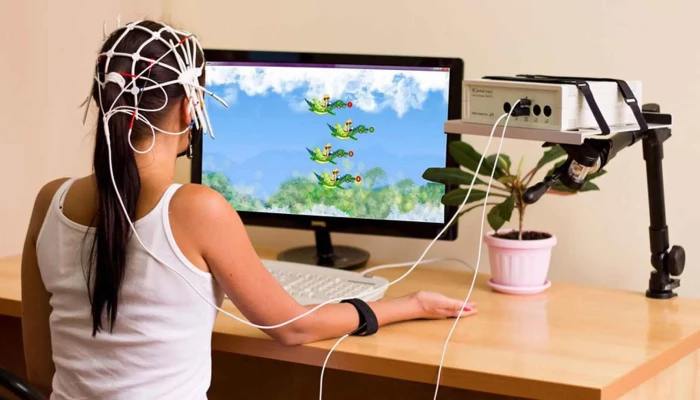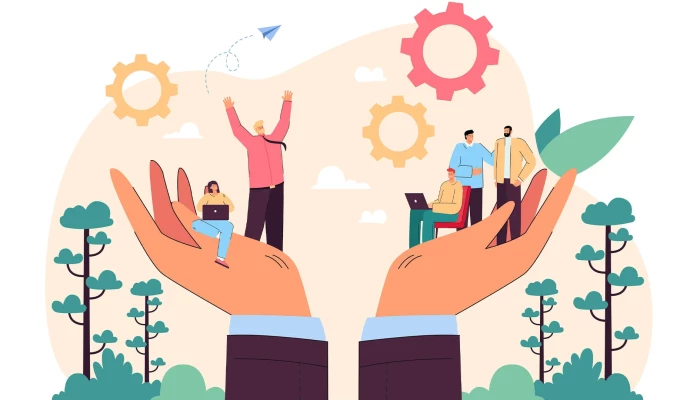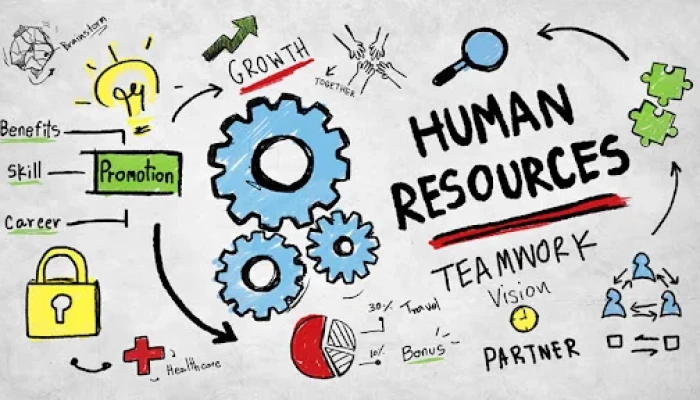Hello!
 Our technology is moving at an incredible pace, and there is no sign of slowing down. It’s easy to become overwhelmed by the news about the “next big thing”, but don’t let that stop you from moving forward. Technology is constantly improving and driving business innovation.
Our technology is moving at an incredible pace, and there is no sign of slowing down. It’s easy to become overwhelmed by the news about the “next big thing”, but don’t let that stop you from moving forward. Technology is constantly improving and driving business innovation.
DevOps will Dominate Development Discussions
Cloud services will continue to be a hot topic because of the need for better data security and infrastructure scalability. Cloud migration saves money and allows you to adopt the latest technologies more easily. It is no longer possible to host business applications locally or use computing resources locally. Cloud services are increasingly used by organizations to manage their technology.
This dependence will only increase with the addition of cloud-based tools like artificial intelligence (AI), machine learning (ML), and more. Cloud is not an option, but a necessity to stay relevant and competitive.
Cloud technology has a lot of power, but it’s also very complex. To use it effectively, engineers need to have the right skills and tools. This critical gap is filled by DevOps engineers.
 DevOps represents a paradigm shift in traditional development thinking, which integrates the work and processes between development and operations teams.
DevOps represents a paradigm shift in traditional development thinking, which integrates the work and processes between development and operations teams.
This leads to continuous integration and continuous delivery (CI/CD) for developers, which replaces standard development processes.
This means that the business side will experience faster delivery, greater security, and greater scalability.
You can Expect to See Virtual Reality Driving Immersive Tech in The Workplace
Both virtual and augmented reality both are fascinating, but VR will be the dominant technology in the workplace. At least, for now. With affordable devices such as the Meta Quest 2, virtual reality has led the way. Innovative companies are already exploring new ways to use this technology and laying the foundations for future applications.
Some of the most popular uses for VR are training and demonstrations. Research on VR’s effectiveness in retention has shown its value and power. It is expected that VR will continue to increase through 2023, and VR training simulations will become more common.
 Due to limitations in hardware, Augmented Reality will be slower than VR when it comes to business adoption. The current hardware, such as the Hololens headset, is prohibitively expensive for mass adoption. AR will remain limited to phones until a more affordable and lightweight headset is available. AR applications will remain centered on brand experiences, entertainment, and retail.
Due to limitations in hardware, Augmented Reality will be slower than VR when it comes to business adoption. The current hardware, such as the Hololens headset, is prohibitively expensive for mass adoption. AR will remain limited to phones until a more affordable and lightweight headset is available. AR applications will remain centered on brand experiences, entertainment, and retail.
As Code Ages Increase, Software Code Maintenance will Become More Important.
Just as technology evolves, so do technology platforms. Both programming and scripting languages are losing popularity. PHP, for example, is an open-source and versatile language. However, Python is becoming a more powerful programming language. Software that is older will need to be updated, or completely rewritten. Upgrades to frameworks will also need to be tested and updated more often.
 Software products that are reliable will require more updates in order to remain relevant and keep the infrastructure up-to-date.
Software products that are reliable will require more updates in order to remain relevant and keep the infrastructure up-to-date.
The best developers are those who embrace the most advanced software frameworks. It will be more difficult to find developers who are proficient in older programming languages. It will be more expensive and difficult to maintain aging frameworks and applications.
Artificial Intelligence is Here (for Better or Worse)
Artificial intelligence is rapidly developing, as evidenced by the explosion of ChatGTP/Lensa. These learning models will continue evolving exponentially and bring new solutions as well as challenges.
AI can increase developer efficiency by automating adding comments to code. This allows the developer to focus more on the code than the descriptions. Automation can also be used to automate some testing. AI is able to recognize errors much faster than the human eye. This efficiency in code will allow developers to concentrate on more complex or strategic issues.
However, AI is not subject to any regulation. This includes how it’s trained and how it’s used. The potential problems are numerous, from copyright to plagiarism and misinformation. The disruption will impact industries across the board in ways that we cannot even imagine. Over the next few decades, AI’s true impact will be felt.
Customers Experience is a More Important Factor in Driving New Applications
 Software applications that are new must now be focused on customer experience. Consumers expect seamless online transactions. The Amazon e-commerce model is the standard. Customers can search for what they need, order it and receive next-day delivery.
Software applications that are new must now be focused on customer experience. Consumers expect seamless online transactions. The Amazon e-commerce model is the standard. Customers can search for what they need, order it and receive next-day delivery.
Customers expect more transparency and better service. Technology is the only way to fulfill these expectations. Businesses must offer better customer service and transparency in order to remain competitive. While some of these can be accomplished through customer-facing applications and interfaces, others will require tighter integration to automate backend business processes and workflows.
Smart organizations are already preparing for 2023 by mapping digital transformation strategies. This includes cloud migration, app upgrades, and new software development projects. These companies are looking for the best resources and engaging enterprise application specialists on a per-project basis to develop new solutions that improve customer experience, optimize operations, and maximize profits.
To stay ahead of the competition, and remain relevant, technology will need to be updated in the next year. A company’s foundation for success in 2023 will be built by finding the right people and engaging the best team of software developers.
Thank you!
Join us on social media!
See you!






